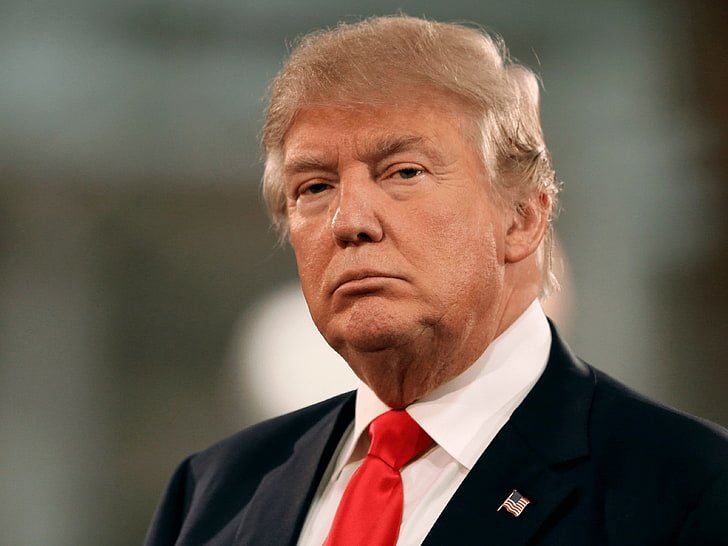Pakistan’s Defence Minister Urges Muslim Nations to Cut Ties with Israel Amid Rising Regional Tensions
ISLAMABAD – In a powerful and emotional speech delivered in the National Assembly, Pakistan’s Defence Minister, Khawaja Muhammad Asif, called upon all Muslim countries to suspend their diplomatic relations with Israel. This demand comes in response to rising tensions in the Middle East, particularly following the Israeli airstrike on Tehran and the ongoing humanitarian crisis in Gaza. Asif’s statement reflects Pakistan’s longstanding support for the Palestinian cause and now includes solidarity with Iran following the recent attack.
This bold call for action comes at a time when the Muslim world is grappling with complex regional dynamics, including escalating violence in Gaza, strained Saudi-Iran relations, and Western involvement in Middle Eastern geopolitics. The Defence Minister emphasized that the unity of Islamic countries is no longer optional but a necessity for preserving sovereignty, human rights, and justice in the region.
A Critical Turning Point in Muslim Solidarity
While addressing the National Assembly, Khawaja Asif did not mince his words. He stated that “if the Muslim world does not unite today, then tomorrow every country will face its turn of oppression.” This remark reflects a growing concern within Pakistan’s leadership that Israel’s aggressive policies and the broader Western silence on civilian deaths could expand conflicts beyond Palestine.
Asif underscored that Islamic nations must take a principled stance and confront the injustices committed against Muslims, whether in Palestine, Iran, Syria, or Yemen. According to him, suspending diplomatic ties with Israel would serve as a peaceful yet powerful method to show resistance against Israeli aggression and send a united message to the global community.
A Pattern of Escalation: The Recent Airstrike on Iran
The immediate trigger for Asif’s statement appears to be the Israeli airstrike that targeted Tehran, which claimed the life of a young Iranian taekwondo athlete and several others. Though details are still emerging, regional sources have confirmed that Israel was behind the strike that killed the athlete, who was widely seen as a symbol of national pride in Iran.
The incident has sparked widespread outrage in the Muslim world, particularly as it follows months of air raids on Gaza, where thousands of innocent civilians, including children, have lost their lives. This new attack on Iran is being interpreted not just as an act of aggression against a sovereign nation but also as a provocation that could ignite a broader regional conflict.
Historical Ties: Pakistan’s Consistent Stance on Israel
Pakistan has never officially recognized Israel. Since its inception in 1947, Pakistan has remained a staunch supporter of the Palestinian cause, repeatedly advocating for a two-state solution based on the pre-1967 borders with East Jerusalem as the capital of Palestine.
In line with this policy, Pakistan has avoided establishing diplomatic relations with Israel and has encouraged other Muslim nations to do the same. However, recent normalization deals—most notably the Abraham Accords between Israel and several Arab states like the UAE and Bahrain—have complicated this unified stance.
Khawaja Asif’s comments are a direct response to what some in the Muslim world view as a weakening of collective resolve. By reigniting the call for diplomatic suspension, he is urging a return to the original principles of Islamic unity in support of Palestine and now, Iran.
Global Reactions and Muslim World’s Response
So far, Khawaja Asif’s call has stirred mixed reactions in the Muslim world. While countries like Turkey, Iran, Malaysia, and Algeria have voiced varying levels of support for such a move, others such as the UAE, Bahrain, and Morocco—which have normalized ties with Israel—are less likely to comply.
However, the Organization of Islamic Cooperation (OIC) is expected to convene an emergency meeting to discuss the situation. Pakistan is reportedly pushing for a joint resolution, urging all OIC member states to reassess their diplomatic relations with Israel in light of its recent actions.
According to diplomatic sources, Pakistan is preparing a formal proposal that will be presented to the OIC Secretary-General. This proposal will outline the need for coordinated sanctions, economic embargoes, and diplomatic isolation of Israel until it adheres to international laws and ceases hostilities.
Punjab Investment Conference 2024: Advancing Economic Growth and Strategic Partnerships
Read This Artecals
The Broader Geopolitical Landscape
Khawaja Asif’s speech also indirectly touched upon Western double standards. He questioned why international organizations, including the United Nations and the International Criminal Court, have failed to hold Israel accountable despite credible reports of war crimes in Gaza and now, military strikes inside Iranian territory.
This criticism echoes growing frustration among Muslim nations and rights organizations. Several human rights groups, including Amnesty International and Human Rights Watch, have accused Israel of violating international humanitarian law during its military operations in Gaza.
Asif emphasized that Islamic nations must no longer wait for Western powers to act and must instead form their own independent alliances and cooperative blocs to ensure regional security and justice.
Suspending diplomatic ties with Israel would have significant consequences, especially for countries that have signed trade and defense agreements with Tel Aviv. For instance, the UAE has billions of dollars in bilateral agreements with Israel across sectors like technology, defense, and agriculture.
However, Khawaja Asif argued that the cost of silence is far greater than the cost of taking a principled stand. He stated, “We must remember that economic interests cannot override our moral and religious obligations.”
He also urged Muslim investors and businesses to divest from Israeli companies and boycott products that support the Israeli economy. According to him, financial pressure can be one of the most effective tools in promoting peace and forcing change.
Public Sentiment in Pakistan
The Defence Minister’s call has received widespread support from political parties, religious organizations, and civil society groups in Pakistan. Protests have already erupted in several major cities, including Lahore, Karachi, and Islamabad, with demonstrators demanding swift action from Muslim governments.
Social media platforms in Pakistan have seen a surge in hashtags like BoycottIsrael, MuslimUnity, and KhawajaAsif. Many users are sharing historical footage of Palestinian suffering, alongside calls for an international Muslim coalition to challenge Israeli aggression.Islamic
Islamic scholars and clerics have also backed Asif’s statements, issuing religious verdicts (fatwas) encouraging Muslims to avoid all forms of normalization with Israel and calling for urgent prayers and donations to support Palestinian and Iranian victims.Islamic
The Role of Saudi Arabia and Iran
Perhaps the most crucial players in this equation are Saudi Arabia and Iran. Despite their complex and often strained relationship, recent diplomatic efforts between the two—facilitated by China—have created a rare window for cooperation.Islamic
Khawaja Asif hinted that the current crisis could serve as a catalyst for greater Muslim unity, urging Riyadh and Tehran to set aside differences and focus on their shared interests.
Observers believe that a united front from Saudi Arabia and Iran could significantly impact Israel’s regional ambitions, especially if they align with other influential Muslim-majority countries like Turkey, Pakistan, and Indonesia.Islamic
Future of the Palestinian Cause
At its core, Khawaja Asif’s statement is a reflection of deep-rooted frustration with the lack of progress on the Palestinian issue. Decades of conflict, failed peace talks, and increasing Israeli settlements have left Palestinians with diminishing hopes for justice.
By proposing a unified diplomatic boycott, Asif is advocating for a shift from reactive to proactive diplomacy among Muslim nations. According to him, “We must not wait for another tragedy to act. Our inaction makes us complicit.”
Conclusion: A Call to Action
Khawaja Asif’s appeal to suspend diplomatic relations with Israel is more than just a political statement—it is a call for moral clarity, international justice, and Muslim unity. At a time when the Middle East teeters on the edge of widespread conflict, his words carry significant weight.
Pakistan’s push for a joint Islamic response could reshape regional alliances and challenge existing power dynamics. Whether this call leads to concrete action remains to be seen, but it has undeniably reignited debate over the Muslim world’s role in the face of continued aggression.Islamic
In a world where geopolitical interests often override humanitarian concerns, Pakistan is urging its fellow Muslim nations to choose principle over politics, unity over division, and justice over silence.




